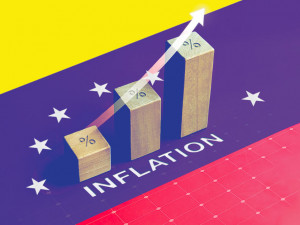
Sanctions have been the topic of global headlines in recent years, from the sanctions on major economies such as Russia, Iran and North Korea. The usage of sanctions has become a key tool in international relations, implemented to apply economic pressure as a response to political conflicts, security concerns or human rights violations. Sanctions against Russia from 2022, as a response to the invasion of Ukraine, have had a widespread effect, not just on the Russian economy but in global trade and energy markets.
What are sanctions?
Sanctions are measures such as the withdrawal of customary trade, financial penalties or other punitive actions taken by one or more countries against another state, group or individual. These measures are taken in hope to get an actor to change their behaviour, by disrupting their economic exchanges. An alternative to military intervention, sanctions can enforce international law, punish wrongdoing and discourage aggressive behaviour and human rights violations.
Businesses operating in a global economy should take care to understand how sanctions affect international trade. Considerable effects can be seen in the disruption of supply chains, increased costs, and restriction of market access. If sanctions are violated, further legal consequences can be expected, with fines and reputational damage.

Types of Sanctions and their Effects
Sanctions can be made in various forms, designed to impact specific parts of an economy, with varying effects on different industries, regions and economic activities.
Economic Sanctions
By far the most widely used form of sanction, economic sanctions have direct effects on the financial activities of a country, achieved through a number of methods. Trade embargoes are a comprehensive ban on all trade with the nominated country. A notable example of this is the US maintaining their trade embargo on Cuba for decades, limiting almost all commercial exchange. Tariffs and Quotas are the next step down from all out trading bans, by limiting the quantity of goods that can be traded with a targeted nation. Another technique of economic sanction is the freezing of assets, used against Russian oligarchs and banks after the invasion of Ukraine. Effects include severely disrupting trading flows, a loss of access to essential goods, and the requirement to reconsider many key trading relationships.
Political Sanctions
These are measures taken in an attempt to isolate governments and leaders from interactions in global politics. They can often impact trade relations, despite not directly targeting economic activity. Techniques of political sanctions include travel bans, where restrictions of movement can be placed on particular individuals. An example of this is the travel bans on many North Korean officials, who are consequently unable to engage in diplomatic negotiations. A more overt display of isolation would be the removal of an entire country from a recognised international organisation such as the G7. This was seen in the transition from G8 into G7, from the suspension of Russia’s membership in 2014, in an attempt to remove its influence from global economy policy. While the effects are not as directly quantifiable as economic sanctions, political sanctions often hamper a nation’s ability to engage in trade diplomacy, leading to isolation and consequent economic stagnation.
Sectoral Sanctions
More targeted than broad economic sanctions, sectoral sanctions aim at specific industries of an economy. For countries that are heavily reliant on a single sector, these can be crippling. For example, Iran and Russia are very much dependent on their energy exports of oil and gas. By preventing companies from purchasing oil or gas, wider effects can be seen in a destabilised energy market. As supply from the sanctioned companies gets restricted, other producers often struggle to maintain the previous level of supply, driving up prices. Further examples of sectoral sanctions can be found in the US imposing sanctions on Huawei, the large Chinese tech company, restricting access to American technology.
Indirect Effects
Once a sanction has been implemented, it is worth noting the indirect effects, often reaching far beyond their original intended target. Once a country has been identified for sanctioning, it is important to note that sanctions will not only affect the sanctioned country but also any foreign entity that does business with them. Further to the impacts on commodity prices, effects can include:
Currency & Payments
Disruptions to international financial systems can occur when a country’s access to a global payment network has been targeted, such as exclusion from the SWIFT network, the main international payments system. When Russia was excluded in 2022, its ability to conduct international trade was significantly impaired. Currency devaluation can also occur when a country is banned from accessing international financial markets. For example, the Venezuelan bolívar rapidly lost value after sanctions were imposed in 2019.
Investor Confidence
Foreign direct investment and business confidence will always be affected by sanctions, as they can put great limitations on any potential returns. In worst-case scenarios, this can lead to capital flight, where investors pull all their money out of a sanctioned country in order to avoid loss. Companies in sanctioned countries that are in need of capital may face difficulties, particularly through bonds or equity offerings on international markets.
Supply Chain Disruptions
The ripple effect of sanctions extends to supply chains, causing delays, shortages and inefficiencies as businesses are forced to adapt to new hurdles. Seeking new suppliers quickly often results in higher costs, such as global tech companies having to shift their supply chains away from China. Either a business will absorb these higher prices, or pass them down to the consumer.

Conclusion
Sanctions are a powerful tool for governments and organisations to exert influence, manipulating behaviours to enforce international laws. As we have explored, the impact of sanctions extends far beyond intended targets, leading to major disruptions of the economic status quo. Indirect effects are equally as notable, leading to price volatility and an overall economic destabilisation of regions. While an effective means of enforcing international expectations, sanctions need to be considered carefully, to avoid unwanted ripple effects that end up doing more collateral harm than good.
As always, for currency news and insight into the world of currency, make sure to stay up to date with our Expert Analysis, as well as our daily Market Commentary.
Caleb Hinton
Caleb is a writer specialising in financial copy. He has a background in copywriting, banking, digital wallets, and SEO – and enjoys writing in his spare time too, as well as language learning, chess and investing.



